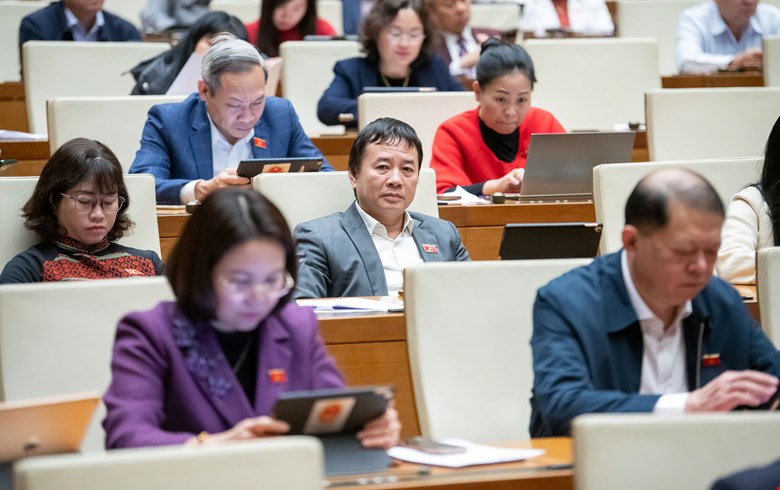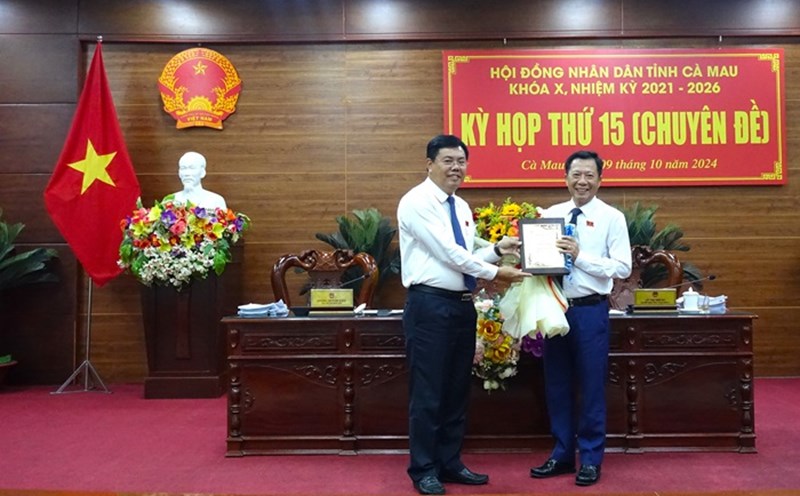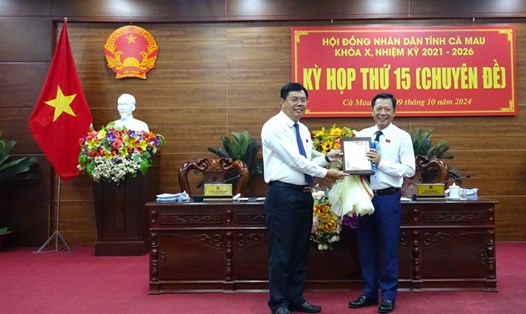At the 9th extraordinary session of the 15th National Assembly, on the afternoon of February 12, Minister of Home Affairs Pham Thi Thanh Tra, authorized by the Prime Minister, presented the Report on the draft Law on Organization of Local Government (amended).
The Draft Law consists of 7 chapters and 50 articles (93 articles less than the current Law).
Regarding the division of authority, decentralization, delegation of authority, and authorization between local authorities at all levels, the draft Law has stipulated a separate chapter on the division of authority, decentralization, delegation of authority, and authorization between local authorities at all levels (Chapter III), which is the basis for specialized laws to ensure consistency when prescribing the tasks and powers of local authorities and local state agencies in specific sectors and fields.
Regarding the local government organization model, the draft Law is revised in the direction of maintaining the local government organization model as in the current Law.
Accordingly, at all administrative units (AUs) at all levels, local government organizations include People's Councils and People's Committees, except in specific cases where the National Assembly stipulates that they are not local government organizations. This regulation is to ensure the continued implementation of urban government organizations in a number of centrally-run cities according to the Law on the Capital and Resolutions of the National Assembly.

Regarding the organizational structure and operation of People's Councils and People's Committees at all levels, in order to ensure the streamlining of the organizational apparatus, improve the operational efficiency of People's Councils and People's Committees; increase the autonomy and self-responsibility of local authorities, the draft Law stipulates in the following direction:
For the People's Council, stipulate the principles for determining the number of People's Council deputies based on population size, regional characteristics and socio-economic conditions of each locality; Assign the National Assembly Standing Committee to stipulate the number of People's Council deputies, the framework for the number of full-time People's Council deputies, the framework for the number of People's Council Committees; Assign the authority to the People's Council to decide on the establishment of Committees and decide on the number of full-time People's Council deputies to ensure compliance with local realities; Assign the Standing Committee of the People's Council to decide on measures to resolve unexpected and urgent tasks in preventing, combating and overcoming the consequences of natural disasters, epidemics, national defense, security, order and social safety; adjust the budget estimate, allocate increased revenue, save annual budget expenditures and report to the People's Council at the nearest session; Amend and supplement regulations on the activities of the People's Council to suit practical requirements.
For the People's Committee, basically inherit the regulations on the organizational structure of the People's Committee according to the provisions of the current Law and assign the Government to stipulate the framework of the number of Vice Chairmen of the People's Committee at all levels, the number of specialized agencies under the People's Committee at the provincial and district levels; The People's Committee at the local government level operates under a collective regime combined with the individual responsibility of the Chairman of the People's Committee and each member of the People's Committee; Clearly stipulate the tasks of the People's Committee that must be discussed and decided collectively; the tasks and powers of the People's Committee are authorized to the Chairman of the People's Committee to perform; Regulations in the direction of expanding the tasks and powers of the Chairman of the People's Committee.
On the organization of administrative units, establishment, dissolution, merger, division, adjustment of administrative unit boundaries, renaming of chapters and order of Chapter II. Organization of administrative units and conditions, order, procedures for establishment, dissolution, merger, division, adjustment of administrative unit boundaries to ensure compliance with the 2013 Constitution.
Provisions in a general direction on the authority, order and procedures for establishing, dissolving, merging, dividing and adjusting the boundaries of administrative units and assigning the National Assembly Standing Committee to stipulate in detail the preparation of projects, order and procedures for considering and approving projects on establishing, dissolving, merging, dividing and adjusting the boundaries of administrative units.











